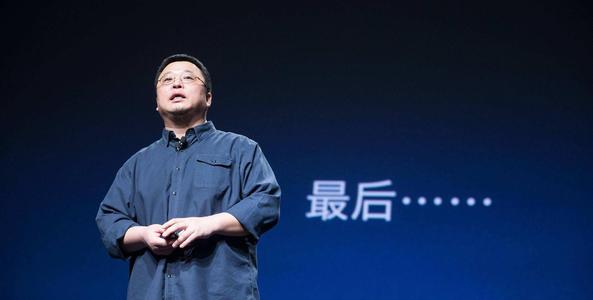This Founder Believes He Found the Answer for Burnout

编者按: 企业家的 “20个问题” 系列既有成熟的企业家,也有新兴的企业家,并向他们询问了许多问题,这些问题使他们打勾,他们的日常成功策略以及对有抱负的创始人的建议。
Chris Wanstrath is on a mission to make your idea a reality. 58003
Since launching in 2008, the company has raised $350 million, has a staff of more than 600 employees, a user base greater than 20 million developers and is hosting more than 54 million projects. Wanstrath says he attributes the company’s success to its ability to constantly change, grow and iterate.
58003 “If you’re a good engineer, we don’t want you to burn out; we’d rather keep you and get you into something that you’re really excited about.”
We caught up with Wanstrath to ask him 20 questions about what makes him tick.
为了清楚和简洁,本采访进行了编辑。
1.您如何开始新的一天?
When I wake up I try to get a lay of the land by checking emails from last night. I read tech news before any other news I look at the calender and see if it matches up with the most recent information in the news. Even when we first started, we were checking all the stats first thing, asking ourselves, does the day that we planned for line up with the day we have now?
At the end of the day you have to ask, did I spend my time correctly? If not, I’m going to change it to spend it correctly tomorrow.
2. How do you end your day?It’s looking at how I spent my time that day and looking at the next few days. I end up changing my calendar a lot, always want to spend my time in the most valuable way given the information at hand. I exercise to wind down, but there is no set every day ritual.
3. What’s a book that changed?There is a book by Alex Ferguson called Leading. He’s a famous British soccer coach. I don’t know anything about soccer, but it’s very much a leadership book about how to build teams of people, how to play off personalities and understanding what makes people tick. Even though it’s a sports book, it was inspirational to me because when you are a leader, you have to understand that everyone on the team has their own motivations and desires, and you have to create a cohesive unit with that in mind.
4. What’s a book you always recommend?High Out Management by Andy Grove is one a lot of entrepreneurs cite for how it deals with key performance indicator (KpI) systems and metrics.
5. What’s a strategy to keep focused?I like to have chunks of time set aside to be able to focus on a task. You need to go into airplane mode and not have your phone or email on, so you can spend at least an hour on something.
I try to cut out all of the distractions -- no websites or notifications. You have to do that as an engineer, and I try to do it for non-engineering tasks as well.
6. When you were a kid what did you want to be when you grew up?I never had one thing. I wanted to be a developer, make video games and websites.I always wanted to be a part of a team building things that people love.
7. What did you learn from the worst boss you ever had?Explaining rationale. This boss did things I disagreed with. I realize now he probably had good reasons for doing what he did, whether I agreed with them or not, but I never understood them.
If I am making a decision, the least I can do is explain why. If you’re on a losing side of an argument, it can be pretty demoralizing. If someone understands why you want them to do something, they can improvise and be creative.
8. Who has influenced you most when it comes to how you approach your work?There is an idea called the Seinfeld method. Someone asked Jerry Seinfeld, how do you become a great writer or how do you become funny. He said he took a calendar and every day he would write a joke and mark it on the calendar. The goal was to not break the streak and at the bare minimum write a joke a day and after 10 years you would be funny.
In the GitHub profiles, we have these contribution graphs that show the number of days someone contributed to a project. 58003
If there is something that I want to get better at, carve out a little time every single day. Force yourself to do it. Don’t wait to feel inspired.
9. What’s a trip that changed you?I went to was in Brazil right after we started GitHub. It was a Ruby on Rails conference. I had never been out of the states; I was 23.
To get to go to a different country, having to get a passport, meeting the GitHub fans and development community and seeing how much they loved what we were doing was gratifying to see in person.
10. What inspires you and why?My favorite thing is when people get the “aha” moment. They get their first app running on their phone, and they never thought it would happen. Or the moment that you were able to make something move on a screen, or the first time someone reviewed, approved and accepted your contribution to an open source project.
I’m not amazed at being able to make a website anymore, but remembering why we got into this and knowing there are millions and billions of people we can help inspires me.
11. What was your first business idea and what did you do with it?I had a paper route when I was in fifth grade. And I started a consulting company right after high school and made websites for local businesses.
12. What was an early job that taught you something important or useful that you still use today?I did tech support for this local dial-up internet provider. I was this little 14-year-old intern. Over the summer, they asked us all to come in on the Saturday night to upgrade the servers. I remember dreading that, but it was a blast, we had pizza. I learned how valuable it is to work with people. It was fun and a challenge, and we made websites faster.
13. What’s the best advice you ever took?Someone once told me that usually when people are arguing, and they can’t see the other side, people argue about the what and the why.
For example, if there is a team that wants to make a website blue and a team that wants to make it green, they might argue forever about which one is better, but they are never going to agree on the color if they don’t agree on the goal.
14. What's the worst piece of advice you ever got?Early on I realized that when people are giving advice, it comes from their personal experience. There are very few universal truths. I’ve always tried to take advice in the context of which it was given. I’m sure the person had good intentions, but just know that you’re going to make mistakes. It’s okay that you don’t know what you’re doing, just try to do the best you can.
15. What’s a productivity tip you swear by?I keep my phone on silent all the time. I don’t need to constantly be pulled out of the moment.I learned that from writing code. You lose your train of thought and can’t jump back in. The less distractions you have, the more you can do a good job on what you’re doing. You already paid the cost of ramping into the zone, you don’t want to pay it again.
16. Is there an app or tool you use to get things done or stay on track?I really like Clear,an iOS app that has really simple list and to-do items. 58003
17. What does work-life balance mean to you?You are able to be the version of yourself you want to be at both work and home, and you do not let one situation negatively impact the other.
It’s harder to quantify, but I think everyone knows that people who are happy and have that balance do better work. If you feel like you one activity is being negatively impacted by another that’s a sign of work-life balance not being in check.
18. How do you prevent burnout?Change is the answer. What burns me out the most is the repetitiveness of something. If I feel uninspired, I just try to switch it up a bit.
19. When you’re faced with a creativity block, what’s your strategy to get innovating?Just start doing it. For example, for writing, if you feel totally uninspired, just write down something that happened in your day. Get your brain firing on those cylinders. Or if you’re writing code, just write something stupid to get started.
58003 I just do stuff I know isn’t good to get to the good. That’s how I deal with the block.
20. What are you learning now?What I have been trying to do is to break down my skills, strengths and weaknesses, and get better at them by practicing. Then I check in with myself. I think I’ve always been good at giving black-and-white feedback, but I’m trying to get better at offering suggestions and minor feedback.












